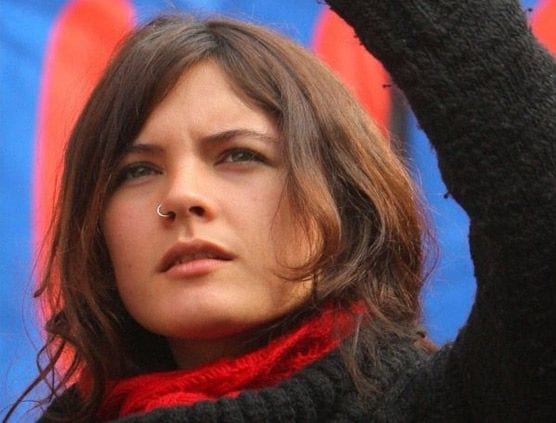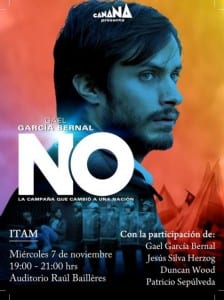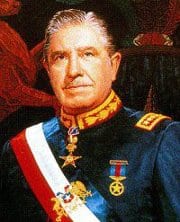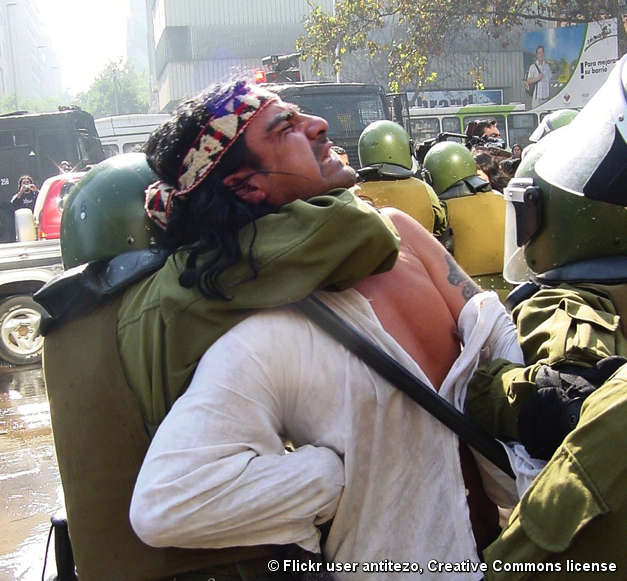Hundreds of thousands of students march in Chile for education rights
By Bill Van Auken, wsws.org
An estimated quarter of a million students joined in demonstrations Thursday across Chile to press their demand for free and decent public education for all.
The largest of the actions took place in the capital of Santiago, where some 150,000 university and high school students along with teachers, professors and other workers marched from the Plaza Italia in the center of the city to the Mapocho station on its northern side.
Smaller demonstrations were held in cities across the country.
The march marked one of the largest demonstrations since the end of the 17-year-long US-backed military dictatorship of Gen. Augusto Pinochet in 1990, and the mass student movement is aimed against the “free market” educational system that was instituted under that repressive regime.
Under Pinochet’s iron-fisted rule and with the input of US economic advisers, the government’s support for education was drastically scaled back in favor of a privatized, decentralized system in which private schools were granted subsidies and parents given vouchers to pay for education.
The system served to deepen the already profound social inequality in Chile, denying decent education to working class and poor youth. The end result is a system in which university education is, in relative terms, the most expensive in the world.
The government covers barely 15 percent of its costs, with the rest falling on students, according to the Organization for Economic Cooperation and Development. In the US, the government share is 40 percent, according to the OECD, while in Europe, at least until recently, it has been up to 80 percent. The Chilean system has fostered a lucrative student loan sector together with punishing debt burdens for those who seek a degree.
The demonstration, the first nationwide protest of this year, took place amid uproar over the bankruptcy and financial scandal at the Universidad del Mar, a private institution, which the government has ordered shut down in the face of student protests, hunger strikes and occupations. At least 11 other private colleges are under investigation, and Chile’s education minister, Harald Beyer, has been suspended and is facing impeachment charges related to the scandal.
It also was held in the context of a presidential election campaign. The two major political coalitions, the right-wing Alianza of incumbent President Sebastian Piñera, and the Socialist Party-led Concertación, are set to hold primaries at the end of June, with the election scheduled for November 17.
In Alianza, three right-wing politicians who have served in Piñera’s cabinet—Andrés Allamand, Laurence Golborne and Pablo Longueira—are competing for the nomination.
In Concertación, the front-runner is former Chilean president Michelle Bachelet, who announced her candidacy late last month after returning to Chile from New York, where she had been appointed head of UN Women.
The student movement began in 2006 under Bachelet’s presidency, when high school students took to the streets in what was then dubbed the “Penguin revolution” (a term derived from their white and black uniforms). The mass movement was rooted in mounting frustration over the lack of affordable and quality public education. Concertación, which held power for 20 years following the Pinochet dictatorship, never altered the constitution on the question of education and kept in place key economic and social policies inherited from the military regime.
Hostility to both of these capitalist political coalitions was evident on the student march Thursday. Students carried placards with slogans reading “I don’t believe you anymore, Michelle” and “Bachelet, Piñera, the same misery.” Demonstrators chanted “We will get back the free education taken from us by Pinochet and Bachelet!”
As the election draws closer, however, pseudo-left elements operating within the student movement will work to divert and subordinate it to the Concertación campaign.
This is particularly the case with the Stalinist Chilean Communist Party (PCCh), which reached a partial electoral alliance with the Socialist Party-led front in the 2009 congressional elections and is preparing for talks with Bachelet and other Concertación officials on backing the ex-president’s bid for another term.
This alliance has been publicly opposed by the Christian Democrats, who have been the principal right-wing ally of the Socialist Party since the end of the dictatorship. The party’s leadership loudly denounced PCCh chairman Guillermo Teillier after he acknowledged in an interview with the weekly magazine El Semanal last week that he had authorized an attempted assassination of Pinochet in 1986.
Bachelet clearly wants the PCCh in her camp to provide a certain left cover. She has announced since her return that she intends once elected to submit to congress a bill to end “for-profit education and increase free education” and to push for the drafting of a new constitution. Given the failure of her own administration and of Concertación to do anything of the kind for over two decades, these promises enjoy little credibility among the student protesters.
Late last year, Camilo Escalona, the Socialist Party head of the Chilean Senate, assured Chilean businessmen that Bachelet would be the best candidate to confront a “threat to stability” created by rising social inequality.
Growing unrest has found expression in a recent series of mass strikes, including a protracted struggle by Chilean port workers which began last month and a one-day nationwide strike by copper miners on April 9. The walkouts led Piñera to make a public statement Wednesday warning of the “enormous harm” caused by the workers’ struggles.
“It is necessary to issue this warning because I have seen many countries that have been derailed, simply because the people haven’t realized that it is difficult to build a country that works for everyone, yet it is so easy to destroy it,” he declared.
In addition to the anger voiced against Bachelet during the course of Thursday’s march in Santiago, the student demonstrators also reacted with hostility toward the distribution of leaflets promoting the candidacy of Camila Vallejo, the former leader of the University of Chile Student Federation (FECH) who was turned into an international celebrity in 2011. She is now running as a parliamentary candidate for the Communist Party.








